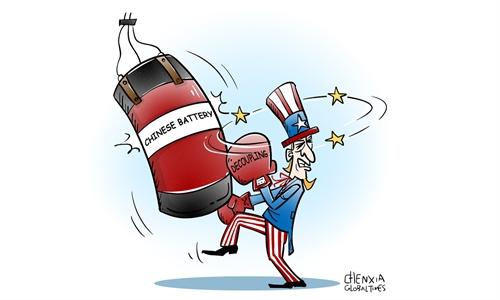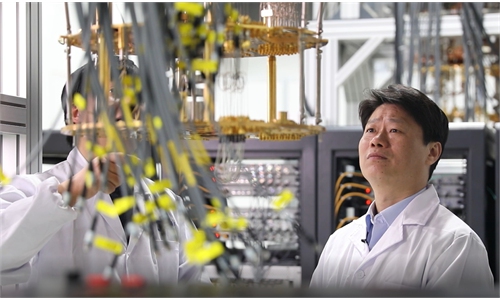
A concept image of brain-computer interface Photo: VCG
A Chinese national lawmaker has called for more progress in implantable brain-computer interface (BCI) technology, so as to be able to produce fully domestically made systems and related products and eventually gain dominance in the key emerging industry.
Huang Li, a deputy to the National People's Congress (NPC), China's top legislature, and chairman of Wuhan Guide Infrared Co - a high-tech firm specializing in infrared thermal imaging technology - said he has submitted a motion that focuses on supporting research and development in the BCI field at the ongoing NPC annual session in Beijing.
"The country should improve laws and regulations, break through institutional barriers, and encourage the development of fully domestically produced, independent, and controllable BCI system platforms and related products to compete for dominance in the industry," Huang told the Global Times in an interview.
BCI technology has broad application prospects in medical and healthcare fields. It can be widely used in detection and diagnosis, screening and monitoring, treatment and rehabilitation for neurological and psychiatric diseases, according to Huang.
"It is an important means to explore unknown fields of the brain, and is also one of the technological highlands that many countries are competing for," he said, adding that the technology also has broad application prospects in areas such as education, entertainment and the military.
China has begun a push to step up research and development in disruptive and frontier technologies. The Government Work Report, which was delivered to the NPC on Tuesday, said that China will vigorously advance new industrialization, make more breakthroughs in core technologies in key fields, and promote the cultivation of emerging industries and future-oriented industries such as hydrogen power, new materials, biomanufacturing, commercial spaceflight, quantum technology and life sciences.
"Cultivating future industries such as BCI is a way for our country to seize the opportunities of the new round of technological revolution and industrial transformation," Huang said.
China has already made solid progress in the field. In the latest major development, a research team at Tsinghua University recently unveiled cases in which two paralyzed patients regained a degree of movement through wireless, minimally invasive BCIs. One of the patients, who had been paralyzed for 14 years, successfully drank water from a bottle using robotic hands for the first time.
Still, greater efforts are needed to accelerate the research and development of BCI in China, as enterprises and scientific research institutions that have mastered the core technologies in this field are mainly based in the US, Huang said.
Huang also called for a green channel for registration and approval of BCI products and a comprehensive medical-engineering platform for conducting basic research into neurotechnology and clinical applications. Another key area is the need to tackle looming ethical concerns, he said.




